-
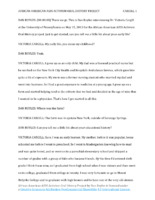
Dr. Victoria Cargill grew up on a farm outside Saratoga Springs, New York. She credits the experience of "helping tend to the critters that we had" and the influence of her parents with her decision early on to become a physician. Cargill graduated high school at 16 and attended Mount Holyoke College before going to Boston University School of Medicine and then to a residency at Harvard.
It was in Boston, in 1982, while working as a part-time doctor at Fenway Community Health Clinic, that Dr. Cargill saw her first patient with AIDS. As she moved on to a fellowship at the University of Pennsylvania and then a job at Case Western Reserve University, she would care for more and more people dying of AIDS complications. She would also see the disproportionate impact of the disease on Black communities become more and more apparent.
With that disproportionate impact in mind, Dr. Cargill started Stopping AIDS is My Missions (SAMM), a peer education program for African American teenagers in Cleveland that eventually grew to include four other cities in Ohio. Around the same time she also worked to develop HIV risk reduction peer education programs for women in public housing projects in Cleveland. She reports that, in addition to becoming educated about HIV/AIDS, the teens and women in these programs gained a sense of empowerment and agency over their lives.
Around the time that Dr. Cargill went to work at the National Institutes of Health in the late 1990s, there was mounting political pressure on federal agencies from the Congressional Black Caucus to do more to address AIDS in Black communities. Cargill describes the creation of the Minority AIDS Initiative in 1998 under President Bill Clinton, and explains the need for culturally competent HIV treatment and prevention programs. Finally, she discusses some of the challenges of HIV prevention with queer youth of color in house ball communities and among Black trans women, as well as the ways that experiences of systemic racism and poverty create challenges for treatment adherence in the patients that she continues to see.
The transcript of this interview has been edited for clarity by Dr. Cargill. When quoting from this interview, please refer to the PDF transcript.
Oral history interview with Dr. Victoria Cargill, conducted at the University of Pennsylvania on May 15, 2013 by Dan Royles for the African American AIDS Activism Oral History Project. This interview was transcribed by Keegan Shepherd thanks to generous support from the Chris Webber Memorial Fund.
-
Website hosted by Critical Path, a Philadelphia-based organization, featuring selected writings by Arnold Jackson, a Black gay AIDS activist. According to Rashidah Abdul-Khabeer, Jackson was "a dear friend and early volunteer with Bebashi during the early days of the epidemic."
Works include an unfinished novel titled "Dividing Lines," articles such as "AIDS by Any Other Name" and "All You Have To Do Is Be Black in America," and eulogies for Jackson by David Fair and others.
This website was captured on November 19, 2003 by Alexa Internet, and is made available by the Internet Archive.
-
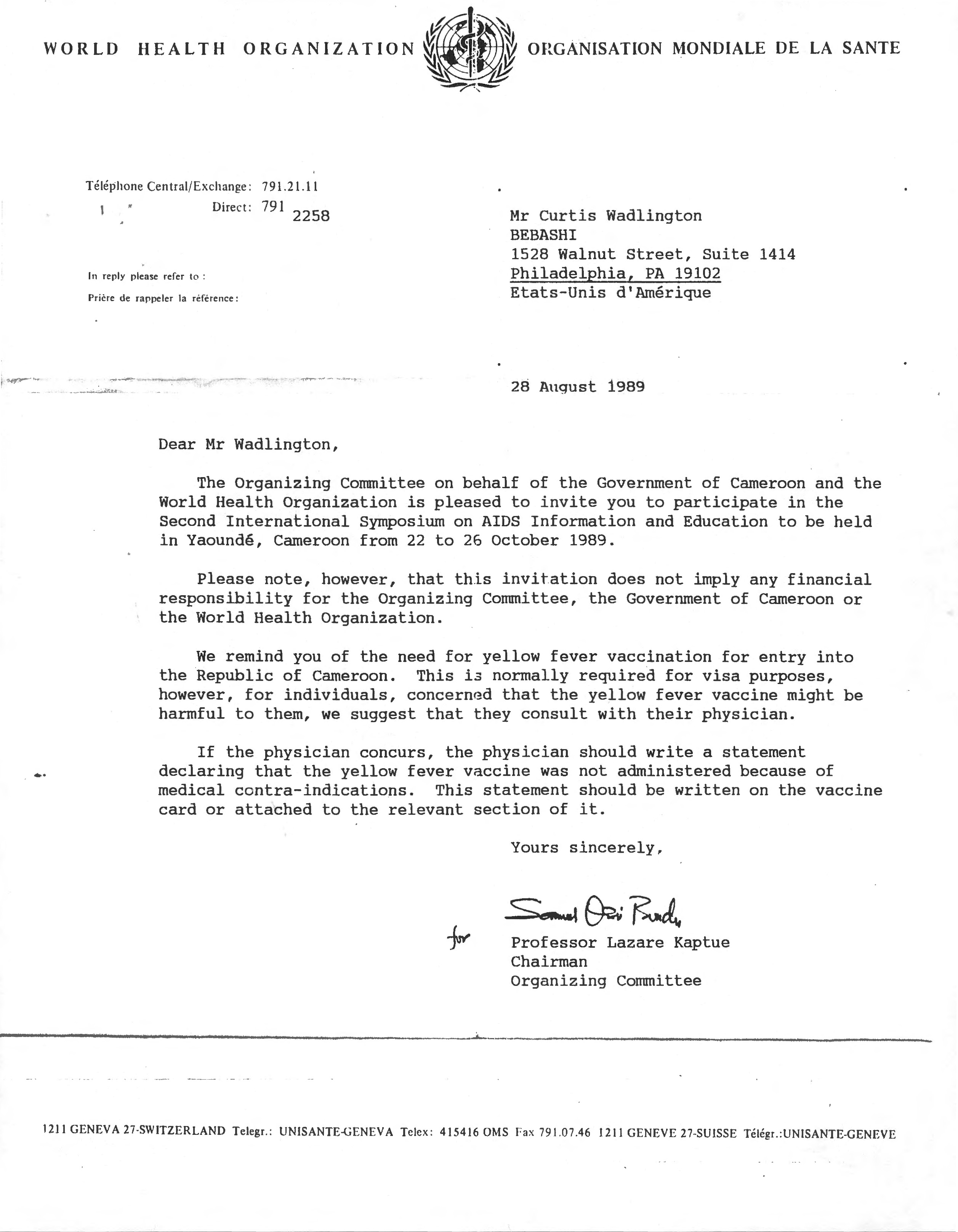
-
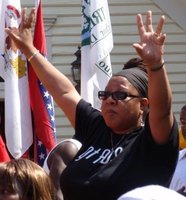
Dázon Dixon Diallo, founder and president of SisterLove, Inc., at a rally by the Campaign to End AIDS outside of the presidential debate between Senators Barack Obama and John McCain on September 26, 2008 in Oxford, Mississippi. Activists traveled to Mississippi from all over the country, including Hawaii, as part of eight caravans to demand a national strategy in response to the HIV/AIDS epidemic. Diallo traveled as part of the Hampton Roads Caravan, which originated in Virginia Beach, Virginia.
In this photo, Diallo is raising both hands over her head. She wears a black t-shirt with "got AIDS?" in white lettering, and a black hair wrap.
-
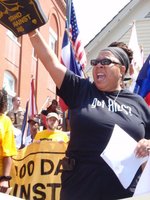
Dázon Dixon Diallo, founder and president of SisterLove, Inc., at a rally by the Campaign to End AIDS outside of the presidential debate between Senators Barack Obama and John McCain on September 26, 2008 in Oxford, Mississippi. Activists traveled to Mississippi from all over the country, including Hawaii, as part of eight caravans to demand a national strategy in response to the HIV/AIDS epidemic. Diallo traveled as part of the Hampton Roads Caravan, which originated in Virginia Beach, Virginia.
In this photo, Diallo holds a folded piece of paper in her left hand, while raising a foam finger that says "Stand Against AIDS" with her right. She wears a black t-shirt with "got AIDS?" in white lettering, and a black hair wrap.
-
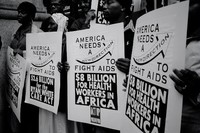
Black and white photograph of a group of African American protesters holding signs that read, "America Needs a New Direction to Fight AIDS, $2.6 Billion for the Ryan White CARE Act" and "America Needs a New Direction to Fight AIDS, $8 Billion for Health Workers in Africa."
-
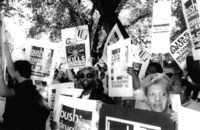
Black and white photograph of a protest at the headquarters of the Republican National Committee in Washington, DC, targeting Republican presidential candidate George W. Bush. Protesters hold up signs that read, "Bush AIDS Policy: Coffins for Kids Not Condoms in Schools," "Greedy Wealthy Bush Kills People with AIDS Worldwide," and "Bush AIDS Policy: Incarceration is Rehabilitation, Drug Treatment on Demand!"
-
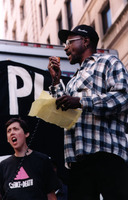
John Bell speaks into the handheld microphone of a megaphone at an ACT UP Philadelphia protest of DuPont Pharmaceuticals. He holds two sheets of yellow paper in one hand. Behind him, ACT UP Philadelphia member Kate Sorensen is shouting or chanting and wearing a t-shirt with a pink triangle that reads "Silence = Death." A black banner with white lettering hangs from a truck in the background.
ACT UP Philadelphia protested DuPont to demand a reduction to the price of the HIV medication Sustiva. According to Paul Davis, who took the photo, this action was the first time that John Bell was arrested for civil disobedience.
-
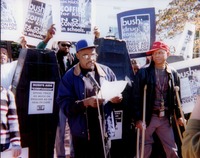
John Bell reads a speech from a sheet of paper into a microphone during a protest at the headquarters of the Republican National Committee in Washington, DC, targeting Republican presidential candidate George W. Bush. He stands in front of several prop coffins, one with a sign that reads, "Bush's AIDS "Compassion": Spend Twice as Much on Prisons as on Health Care." Protesters behind Bell hold up signs that read, "Bush: Drug Company Puppet, Generic AIDS Drugs for Africa Now!" and, "Bush AIDS Policy: Coffins for Kids Not Condoms in Schools." The man on crutches in the right side of the photo is ACT UP Philadelphia member Joe West.
-
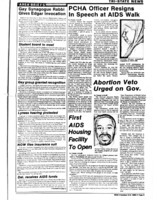
-
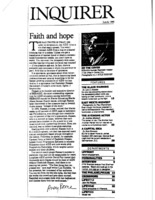
Profile of Rashidah Hassan, founder of Blacks Educating Blacks About Sexual Health Issues, in the Philadelphia Inquirer's Sunday magazine.
-
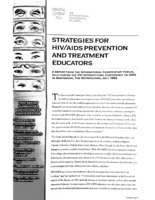
Report from the 8th International AIDS Conference in Amsterdam on targeted education programs for different communities, using a variety of educational models.
-
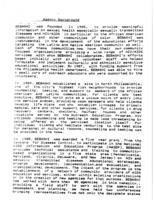
Gives a brief account of BEBASHI's history and describes services currently offered, such as including counseling, testing, and education for communities of color. Also lists two of the organization's funding sources: a grant from the Centers for Disease Control and appropriations from the recently-passed Ryan White CARE Act funds. Finally, describes BEBASHI's connections to other groups through the National AIDS Information and Education Program, Philadelphia AIDS Consortium, and Minority AIDS Coalition.
-
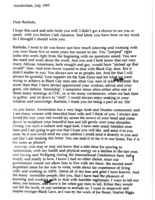
Reggie Williams, writing from Amsterdam, thanks Hassan for her work with black gay men around HIV and AIDS. He says that he wants to inspire young black gay men to tell their own story, as well as that of African American community-based organizations confronting the AIDS epidemic. Finally, Williams describes the complications of his own advanced disease, including pneumonia, cytomegalovirus, and rectal abcesses. Williams had recently moved to the Netherlands to live with his Dutch partner, Wolfgang, who could not come to the United States due to the travel and immigration ban on HIV-positive people then still in effect.
-
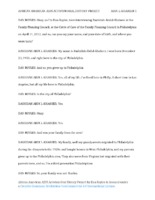
Rashidah Abdul-Khabeer (b. 1950) has spent most of her life in Philadelphia, where she grew up amidst the social change and political ferment of the 1950s and 1960s. She converted to Islam during college—having been raised in a Baptist church—and went on to become a nurse and infectious disease control specialist. In that capacity, she became aware of AIDS early on in the epidemic, and realized that the disease would take a particular toll on marginalized communities. She began to volunteer with Philadelphia AIDS groups, which were primarily oriented toward white gay men, and became frustrated with their apparent unwillingness to develop specific outreach and education efforts for African Americans. In 1985 she founded Blacks Educating Blacks About Sexual Health Issues (BEBASHI), one of the country's first black AIDS service organizations. Abdul-Khabeer (who at the time was known as Rashidah Hassan) gained national attention for her work with BEBASHI, and traveled the country attending conferences and educating others about AIDS in black communities. In 1994 she resigned as executive director of BEBASHI, and went on to work on HIV prevention projects for the Circle of Care at the Family Planning Council of Southeastern Pennsylvania. In this interview she discusses the relationship between her religious faith and her work in health and human services, her career as an AIDS activist, and current challenges in the fight against HIV/AIDS.
Today continues its mission of improving the health of economically disadvantaged Philadelphians.
This interview was conducted by Dan Royles for the African American AIDS Activism Oral History Project on April 11, 2012. This interview was indexed using the Oral History Metadata Synchronizer by Maria Santiago in June 2016, thanks to generous support from the Chris Webber Memorial Fund
-
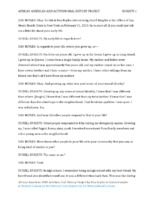
Oral history interview with Durell Knights, conducted at Gay Men's Health Crisis on February 21, 2013 by Dan Royles for the African American AIDS Activism Oral History Project.
-
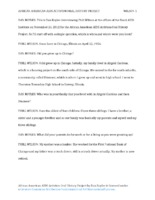
Oral history interview with Phill Wilson, conducted at the Black AIDS Institute on November 26, 2012 by Dan Royles for the African American AIDS Activism Oral History Project.
-
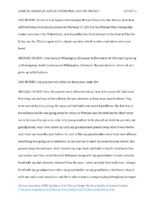
Oral history interview with Michael Hinson conducted for the African American AIDS Activism Oral History Project by Dan Royles on February 19, 2013. Mr. Hinson discusses his youth in Delaware and South Carolina, coming out as a black gay man, and his work with Blacks Educating Blacks About Sexual Health Issues (BEBASHI), Colours, the city of Philadelphia, and the Center for Black Equity.
-
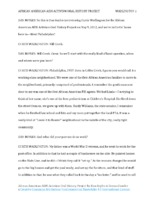
Curtis Wadlington (1957-2012) grew up in Cobbs Creek, a neighborhood in West Philadelphia, where he spent most of his life. As a teenager, Wadlington began working as a camp counselor, which marked the beginning of his career in human services. Although he had romantic and sexual relationships with men, Wadlington did not identify with Philadelphia's downtown "gayborhood," on account of the racism that he and other men of color experienced there. As AIDS began to strike gay men and people of color in the early 1980s, Wadlington and others accused Philadelphia AIDS groups, which were primarily oriented toward white gay men, of ignoring the growing epidemic in the city's African American community. Thus, Wadlington became an early member of Blacks Educating Blacks About Sexual Health Issues (BEBASHI), one of the country's first black AIDS service organizations. Today BEBASHI continues its mission of improving the health of economically disadvantaged Philadelphians.
This interview was conducted by Dan Royles for the African American AIDS Activism Oral History Project on May 9, 2012. This interview was indexed using the Oral History Metadata Synchronizer by Maria Santiago in June 2016, thanks to generous support from the Chris Webber Memorial Fund.
-
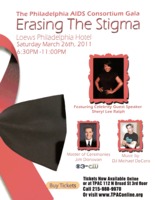
Sign reads The Philadelphia AIDS Consortium Gala Erasing the Stigma. Lowes Philadelphia Hotel featuring celebrity guest speaker Sheryl Lee Ralph
-
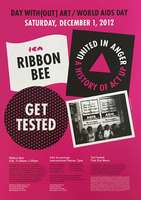
Sign reads Day With(out) Art / World AIDS Day. Ribbon Bee. Get Tested. Includes information on back of Bebashi
-
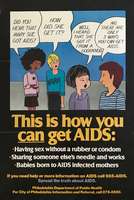
Sign depicts cartoon of people talking about how AIDS is transmitted.
-
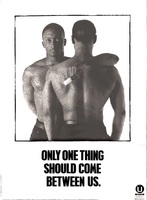
Sign reads Only One Thing Should Come Between Us. Unity, Inc. Philadelphia. Department of Public Health, AIDS Activities Coordinating Office. Funded by the AIDS Community Education Project
-
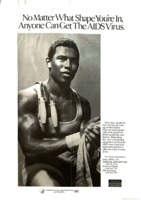
Sign reads No Matter What Shape You're In Anyone Can Get the AIDS Virus
-
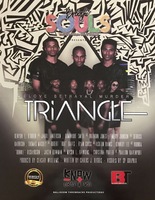
Sign reads Bebashi SOULS Society of Unique Love & Support. Love Betrayal Murder Triangle.
























